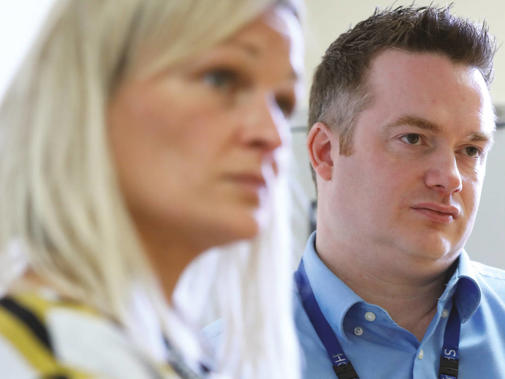Pauline Linton*, a 53-year-old mother of three and civil servant, was at work when matters came to a head.
She shouted at colleagues, stormed out of a team meeting and burst into tears in front of her boss.
She went home and visited her GP. ‘They said, “I don’t know what to do”,’ she says. ‘You’re on all the medications I can give you. I’m not sure what I can do right now.’
'Black and dark'
This was two years ago. Ms Linton had seen her GP a lot previously for her fibromyalgia, diabetes, irritable bowel syndrome, osteoarthritis, problems with her thyroid gland, insomnia, and sleep apnoea. She’s had anxiety and depression, on and off, since her 20s, taken months off work and faced disciplinary action.
‘I was struggling with friends and family. I was keeping myself to myself. Things were just really black and dark,’ she recalls.
Her GP mentioned a pilot service run by Chris Schofield, a consultant liaison psychiatrist at NHNFT (Nottinghamshire Healthcare NHS Foundation Trust).
‘My GP said it took a more holistic view,’ Ms Linton adds. ‘It sounded good. I’d been back so many times, I sometimes felt like a bit of a hypochondriac.’
The vast majority of our patients report improved symptoms and lifestyles
Community focus
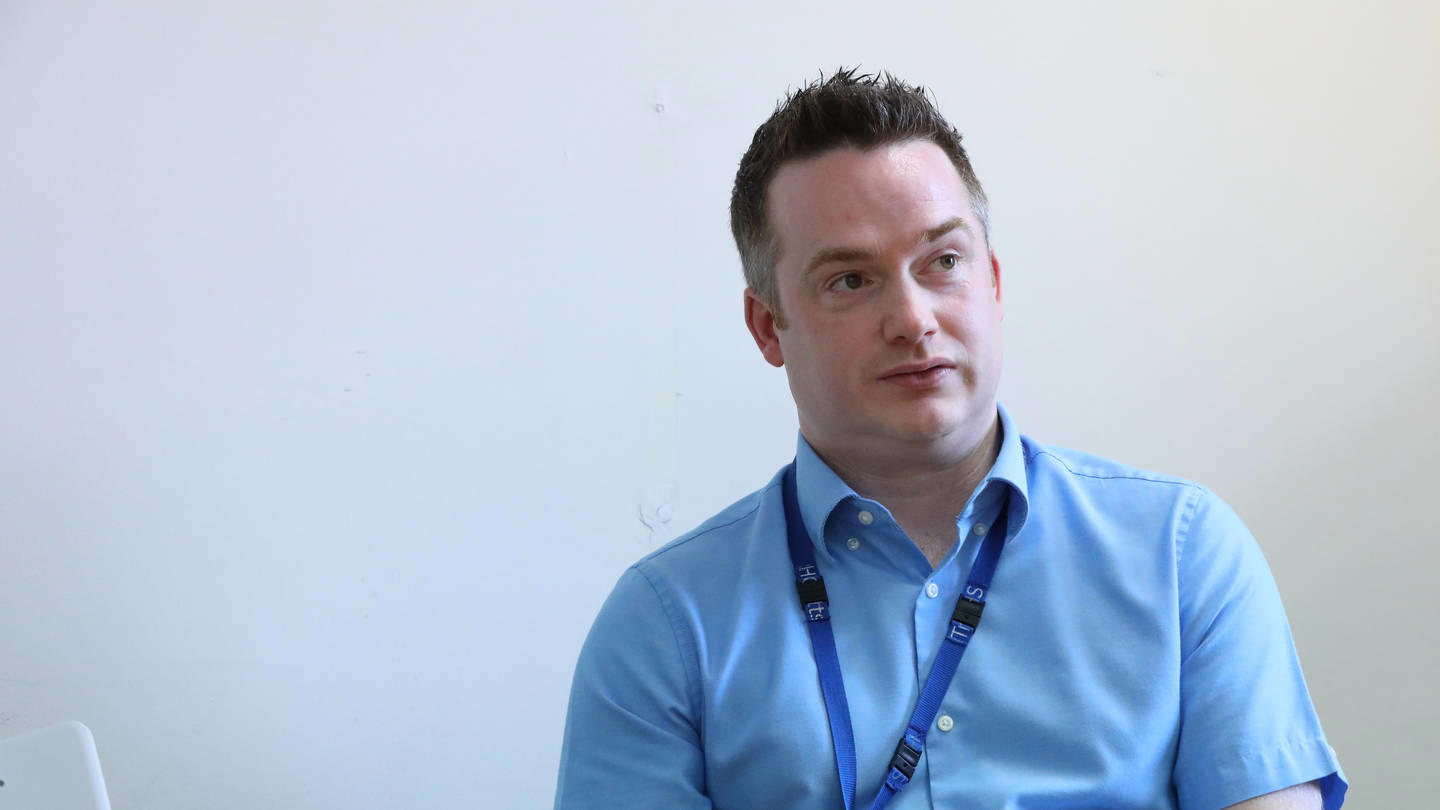
This new service, PCPM (primary care psychological medicine), offers liaison psychiatry through GP practices instead of hospital clinics, as is the NHS convention. ‘You get a much closer connection in the community,’ says Dr Schofield (pictured). ‘You get closer to real [life].’
It’s for people, such as Ms Linton, who have chronic physical health problems, some of whose symptoms are ‘medically unexplained’. It’s a poor phrase, Dr Schofield admits. ‘“I have no idea” is not what I call a diagnosis.’
Many see multiple doctors and take numerous medications. It’s helped hundreds so far, those cases too complex for Improving Access to Psychological Therapies, the standard NHS talking-therapy service.
Two years on from her initial referral, Ms Linton says she better understands how her physical and mental health connect. She feels more in control of her medication. Her job is no longer in jeopardy.
‘I’ve realised the fibro can be a sign that I’m about to take a dip,’ she says. ‘It’s a beginning sign before the mood drop, so I can slow down a bit,’ she adds. ‘Instead of going on a bike downhill uncontrolled, I’ve got brakes.’
Budget buster
But two years on, despite independently verified evidence of its benefits, the service’s future is not yet certain. It has been rolled out across south Nottinghamshire for further testing. All six CCGs are ‘supportive’ following the ‘successful pilot’ in Rushcliffe, they say. They’re helping to draft a ‘business case’ for its continuation.
Its time-limited funding is, however, due to run dry next December as the NHS in Nottinghamshire seeks £78.2m of savings across its 2019/20 allotted budget. Rising demand, as in many other parts of the country, is busting its budget.
All this as managers are occupied with major ‘structural’ changes in Nottinghamshire.
Its six CCGs (clinical commissioning groups) are merging into one, matching the footprint of its ICS (integrated care system), which brings together NHS and local authority care managers. In addition, three integrated care providers are being set up. All will have some say on services. What stays, what goes.
It’s not an easy environment in which novel, relatively unknown services can survive, however much good they do.
We are edging towards a system where integration has to happen, where you see the whole person and not just the physical health.
Improved systems
So how is PCPM helping patients? How could it improve the health service in Nottinghamshire and beyond? What are its odds for survival?
Liaison psychiatry, the branch of psychiatry straddling physical and mental ill health is, of course, nothing new to the NHS. What’s novel in Notts is that referrals come from GPs.
‘Many GPs say this patient group doesn’t get better. But that’s simply not true,’ says Dr Schofield.
It is patient-reported symptoms, recorded at first appointments, then every three months, that show improvements in their mental and physical health symptoms and lifestyles, he adds.
‘Some see their GPs less and relationships with patients also improve. Clinicians can also feel that they have nothing left to offer this group of patients and that’s really unpleasant, too.’
'She knows me now'
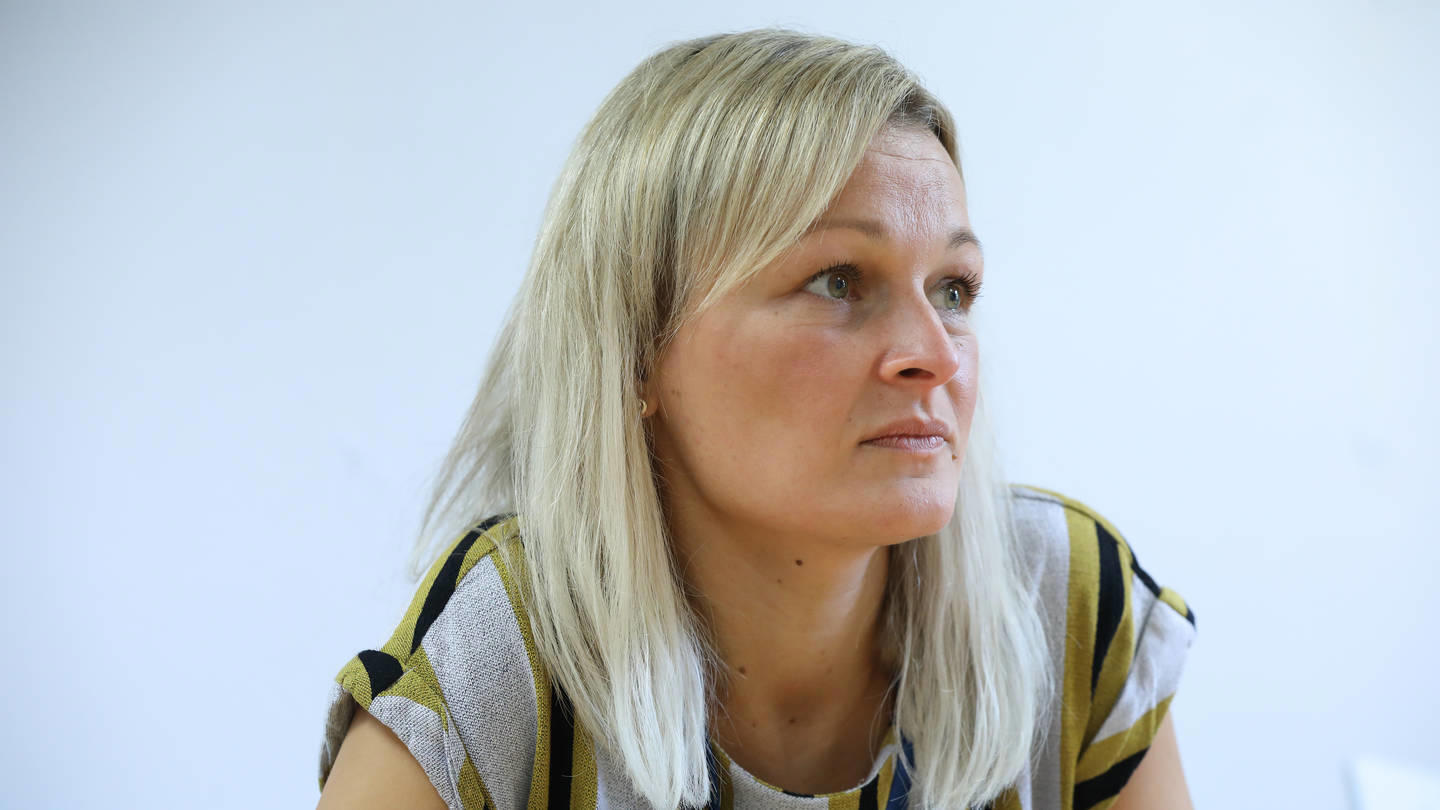
The service was made possible in Rushcliffe, one of the six CCGs in 2016, thanks to time-limited funding from NHS England to test ‘new models of care’. An early economic evaluation by the respected Centre for Mental Health, found it saves more, through reductions in access to health services, than its staff costs alone, an ‘extremely encouraging sign’, says its report, A New Approach to Complex Needs.
Ms Linton’s first appointment was with specialist nurse practitioner Natasha Cain (pictured).
‘It was hard, wasn’t it?’ she recalls, looking to Ms Cain. ‘We went back through lots of stuff that had happened over the years. I think I only got to late teens.’
They continued to meet, weekly, then fortnightly, then monthly. They still do, though far less frequently.
‘I really like to get to know the person in front of me,’ says Ms Cain. ‘When I ask you things, you sometimes say, why are you asking me that? But I’m trying to build a picture.’ She met her family, her husband and children, early on.
‘Natasha knows me now,’ Ms Linton adds. ‘She knows my family, my circumstances. That makes an important difference. Before, I’d had CBT, EMDR [eye movement desensitisation and reprocessing], lots of different counsellors. I’d be exhausted afterwards, I’d be down, build myself up, then it would be time for my next appointment. It was this constant cycle. This is so different. I’m not afraid to see Natasha.’
I was spending hours in bed. My room felt like a prison. I was thinking, there’s nothing out there for me.
Empowerment
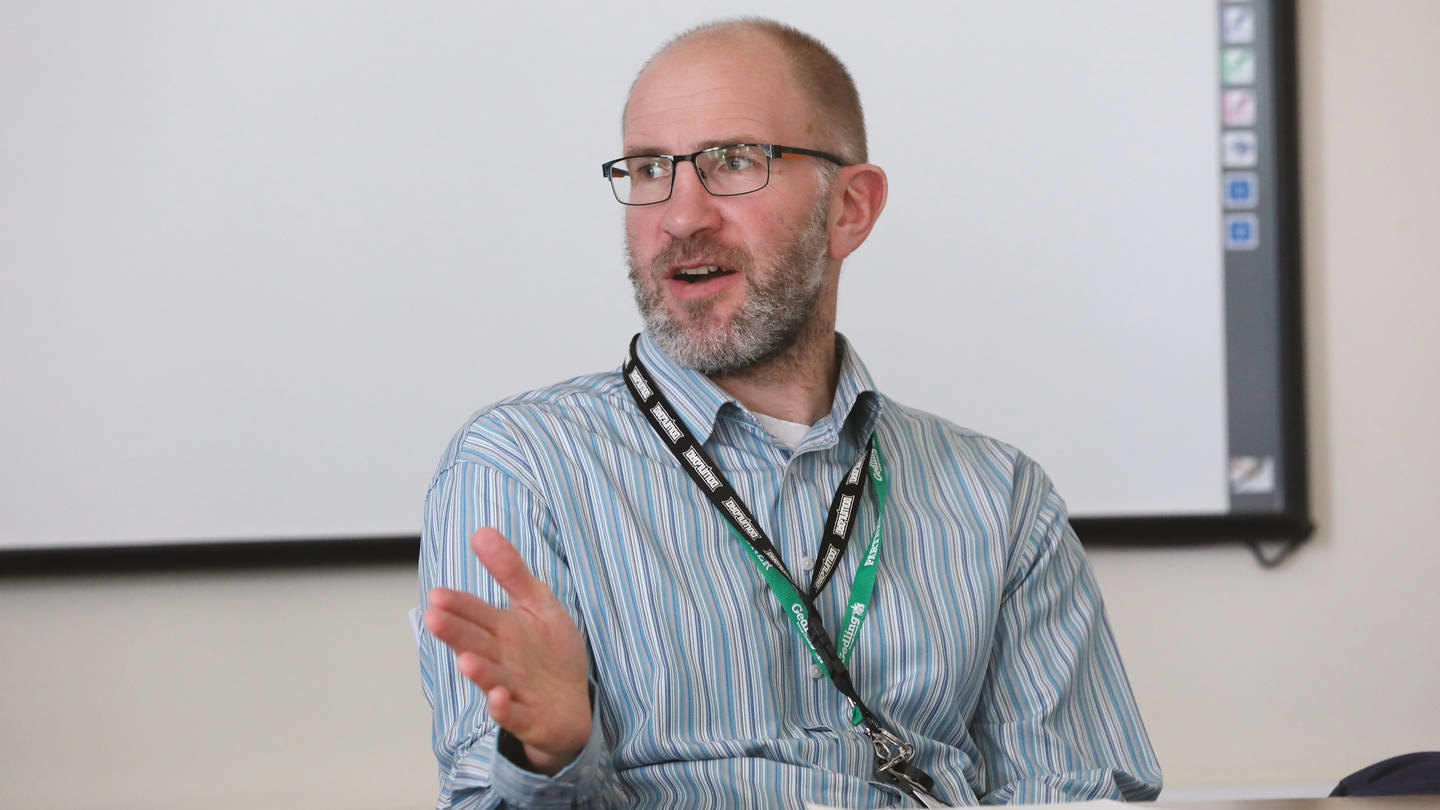
Weeks after her first visit, she met Dr Schofield to discuss medication. ‘He talked about the different paths we could choose. He said, we could do this. But that could affect that, go away and think about it. That was massive. It was an empowerment. So many times we walk in and come out with a script. We don’t know the effects. When you’re taking loads of tablets you’re thinking, I’m just popping these,’ she says.
Dr Schofield speaks of the service like the experienced psychiatrist he is. Its logic is simple. Its success is unsurprising. It’s what good liaison psychiatry should do and does.
‘There’s isn’t anything particularly clever about it,’ he tells The Doctor.
‘If you’ve got physical symptoms and mental health problems it’s easier to get to an appointment which is closer to you. Even the loveliest of hospitals are big. You’ve got to get through all those people, sit in a large waiting room. When patients feel better, they don’t go to their GP as often.’
But despite the positive response from doctors, patients, the encouraging signs in its evaluation, and supportive words from its commissioners, the future of PCPM is not guaranteed. They hope it will go on and further extend across Nottinghamshire but they face several hurdles before regular, ongoing funding is agreed.
‘As responsible commissioners, we need to look at how best to spend the money available on services that local people need,’ says South Nottinghamshire CCGs deputy locality director Stewart Newman (pictured).
‘We know that the approach works really well in Rushcliffe, now we need to see whether the same outcomes are delivered at scale.’
Bureaucratic hurdles
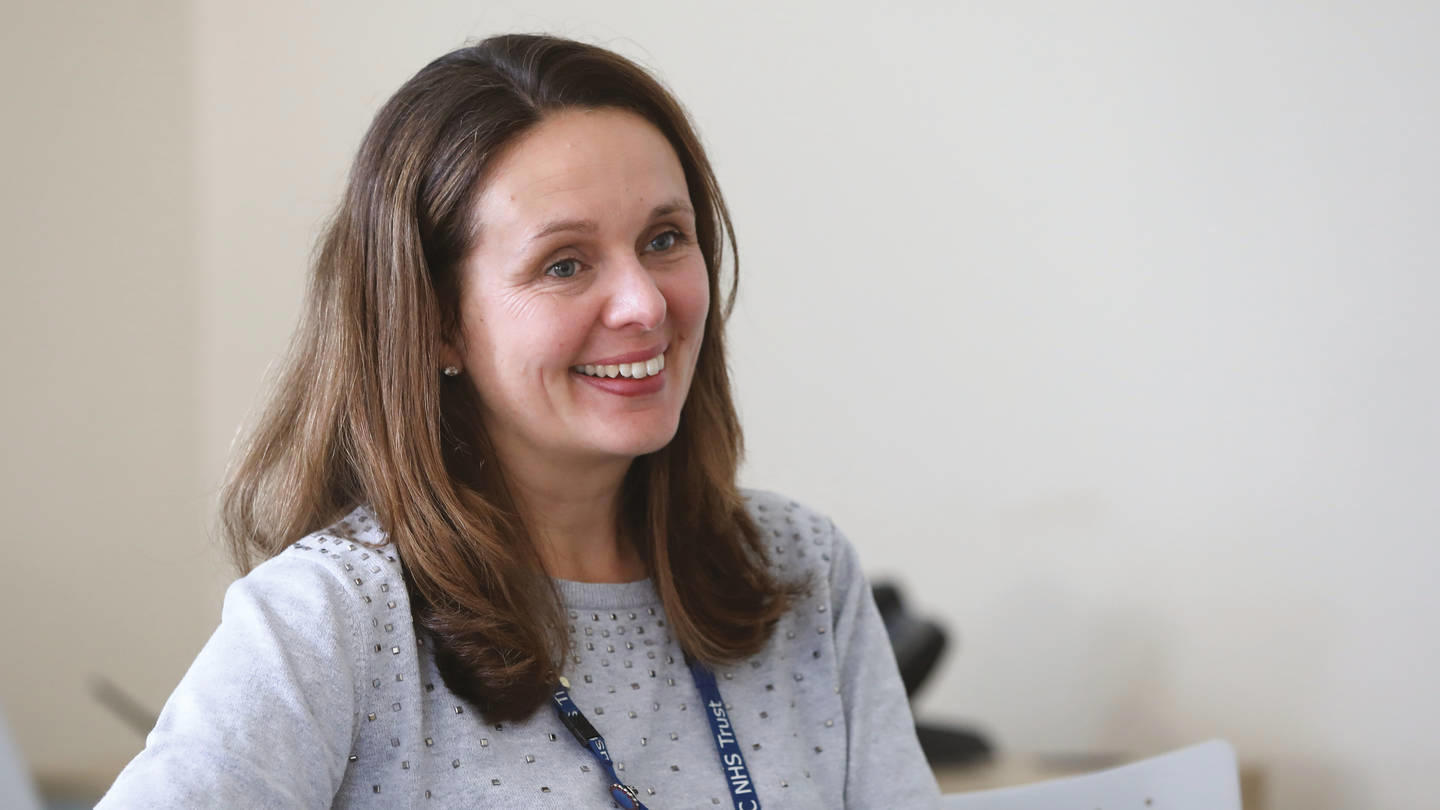
Another hurdle is its awkward ‘fit’ into the NHS bureaucracy which, though shifting, still favours established services, which are already pigeonholed and ‘coded’ for the cost and savings calculations essential to budget taming.
‘These patients don’t just come to emergency departments or one outpatient clinic,’ says NHNFT programme manager for integration Helen Smith (pictured).
‘They’re in respiratory, neurology, they’re in diabetes. They’re dispersed. It makes it hard to say that we’re shifting this work to the community.’
There’s an obvious irony here with the rise of new NHS structures aimed at ‘integration’.
Passing her by

‘The narrative of the ICS does align with this service,’ says Rushcliffe CCG mental health lead and GP Nicholas Page (pictured).
‘We are edging towards a system where integration has to happen, where you see the whole person and not just the physical health,’ he adds. ‘It’s a race to keep the service going long enough for that to mature. It would be upsetting if it didn’t continue.’
Before her referral to PCPM, Ms Linton says she felt life was passing her by.
‘I was spending hours in bed. My room felt like a prison. I was thinking, there’s nothing out there for me.’
She still has good and bad days. ‘But because of the strategies we’ve developed and the way we look at things now, I seem to be able to deal with it.’
All services have a cost of course. Decisions are made daily about which of the many beneficial services, which make up the NHS, get funded.
But as Dr Schofield points out there are other costs which should be considered. There are patients like Ms Linton across the UK, in every town, village and city. ‘Who pays for these services?’ he asks. ‘It’s the patients who pay for them when they’re not there.’
* Name has been changed

